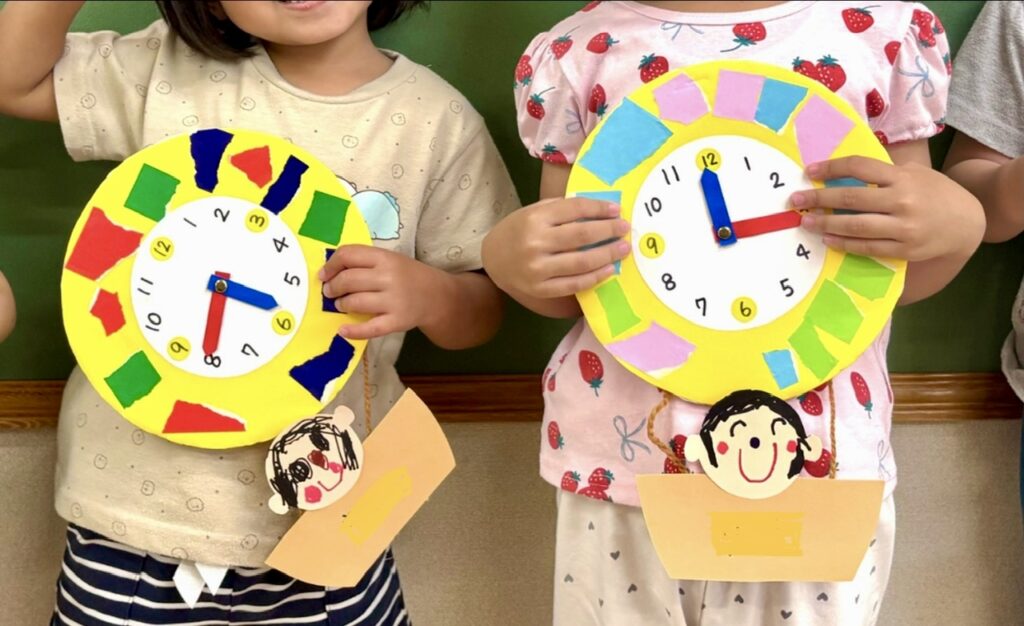









6月10日は時の記念日。
子どもたちにも、時間は大事だよと知って欲しいなと思っています。
年少さんが作った ⏰時計⏰

Odense, Denmark’s third-largest city and birthplace of Hans Christian Andersen, values creativity and child-centered learning deeply within its early childhood education system. Following Denmark’s national model, children typically attend “vuggestue” or “børnehave” before formal schooling begins at age six ([Reference 1]).
The city closely adheres to the “Læreplanstemaer” ([Reference 2]), emphasizing personal development, social competencies, language, creativity, movement, and nature exploration. Odense has pioneered creative learning methods, encouraging storytelling, drama, and imaginative play as core components of early education.
Municipal programs like “Sammen om Barnet” (“Together for the Child”) ([Reference 3]) focus on early intervention and cross-sector collaboration among educators, health services, and social workers to provide holistic support for children’s development.
Additionally, Odense promotes inclusivity by ensuring that children with special needs or non-Danish backgrounds receive tailored support from the earliest stages.
As a kindergarten director, I find Odense’s approach inspiring—blending academic goals with creative exploration, community collaboration, and strong emotional nurturing to prepare children for a joyful and meaningful future.
References:
[1] Ministry of Children and Education, Denmark: Early Childhood Education Structure
[2] Læreplanstemaer (Learning Themes Framework)
[3] Odense Municipality: Sammen om Barnet (Early Intervention Program)
デンマーク第3の都市であり、童話作家アンデルセンの故郷でもあるオーデンセは、創造性と子ども中心の学びを幼児教育の中核に据えています。
子どもたちは「ヴッゲストゥエ(vuggestue)」または「ブーネハーヴェ(børnehave)」に通い、6歳で初等教育に進学する流れを採っています。
全国共通の「幼児教育カリキュラム枠組み(Læreplanstemaer)」に則り、個人の発達、社会性、言語能力、創造性、運動、自然体験を総合的に育むことが重視されています。
オーデンセでは特に物語活動やドラマ、想像力を活かした遊びを教育の中心に据え、子どもたちの豊かな表現力を育てる取り組みが進められています。
また、「サムメン・オム・バーネット(Sammen om Barnet)」と呼ばれる早期支援プログラムを通じて、教育、保健、福祉が連携しながら子どもたちの成長を包括的に支えています。
特別支援が必要な子どもや非デンマーク語話者にも、個別の支援が早期から提供されます。
創造性、地域連携、情緒的な支援を巧みに組み合わせるオーデンセのアプローチは、未来を生きる子どもたちにとって最良の環境を提供していると感じます。